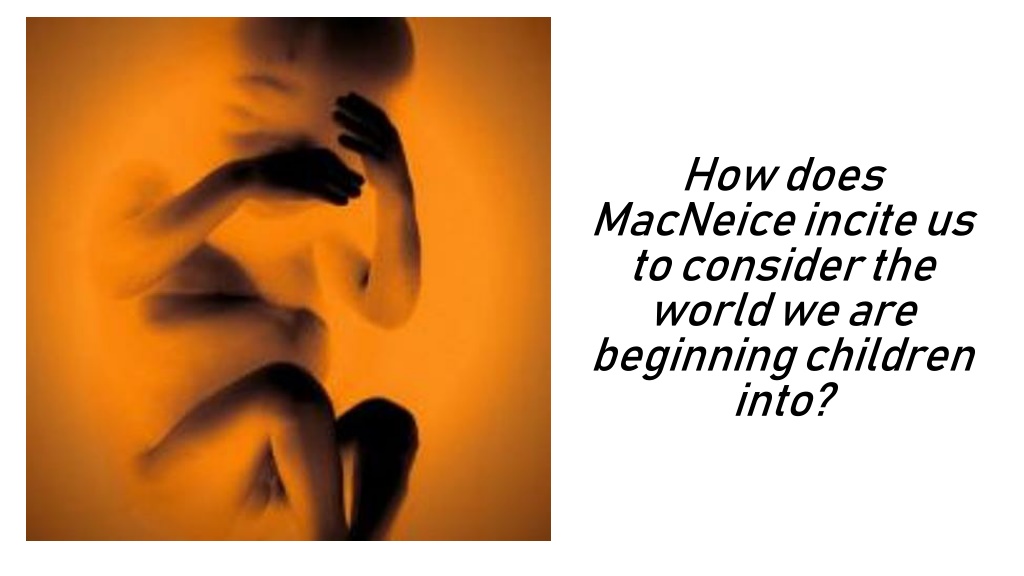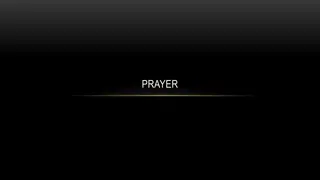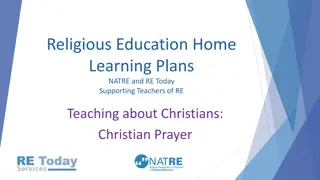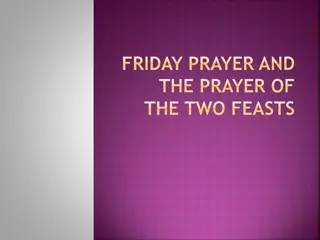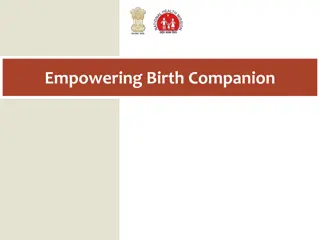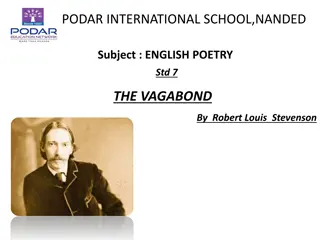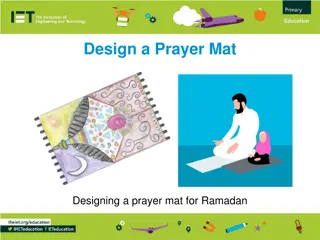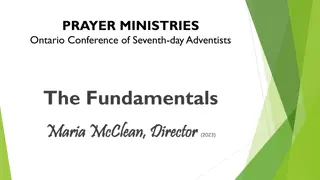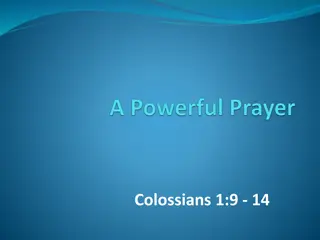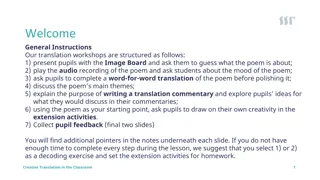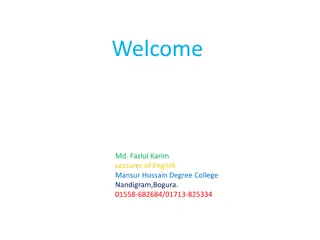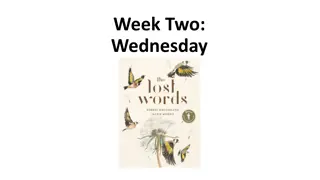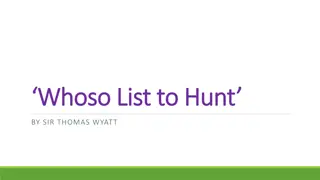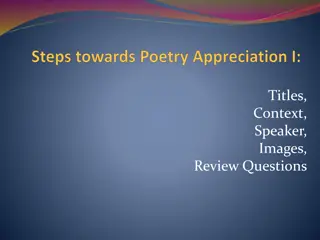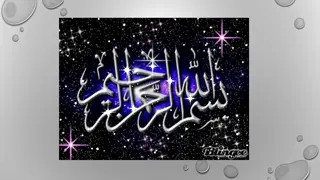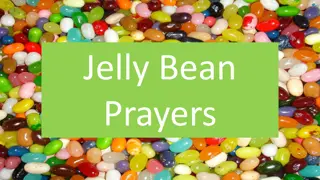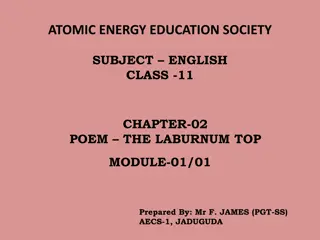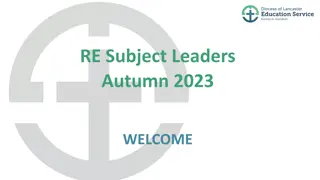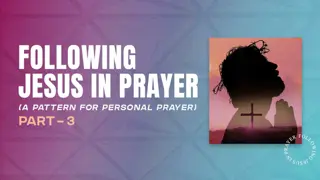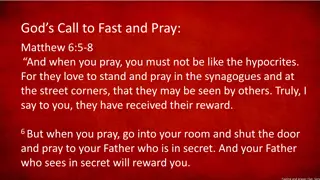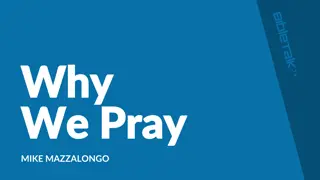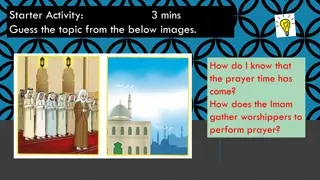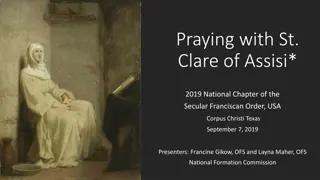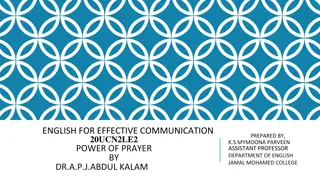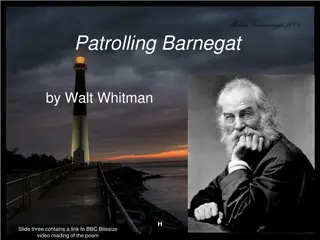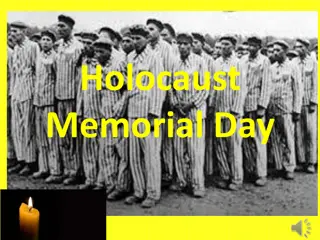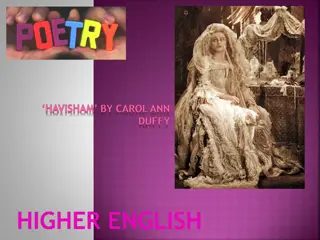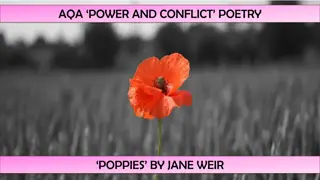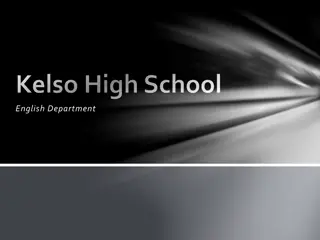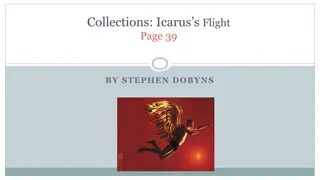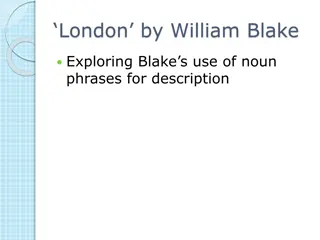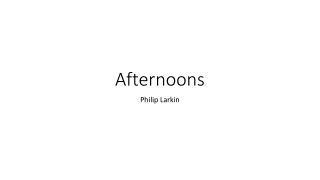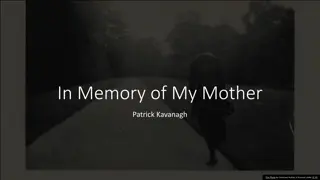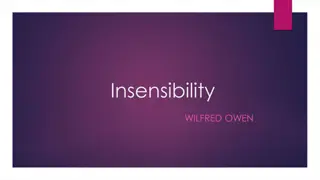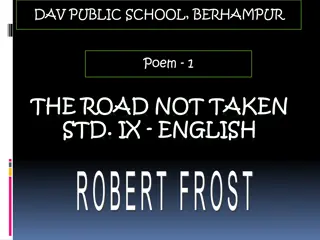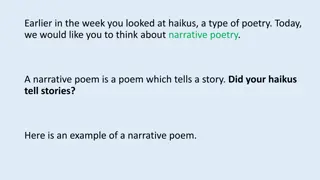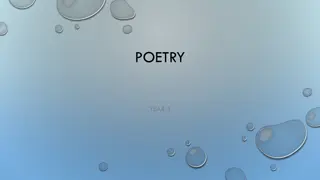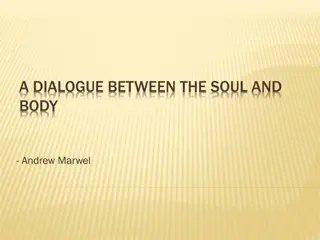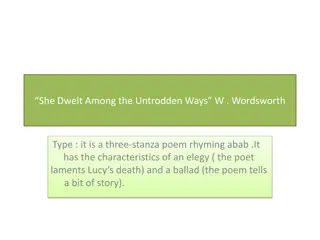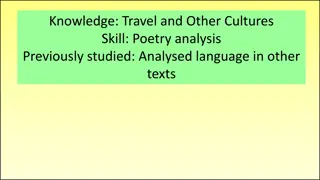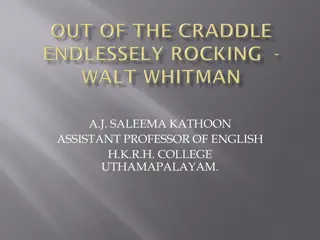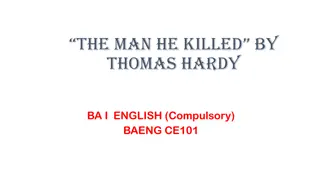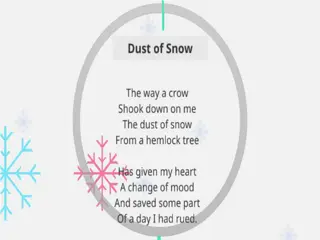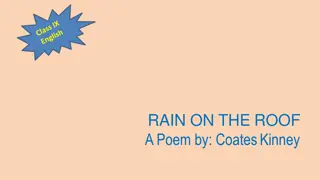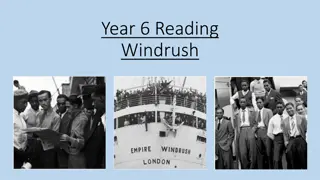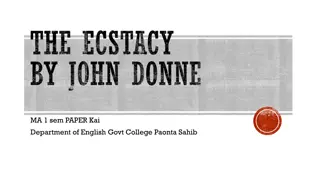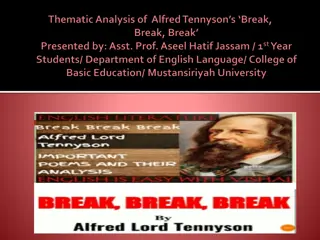Exploring Louis MacNeice's Poem "Prayer Before Birth
Louis MacNeice incites readers to contemplate the world they are bringing children into through his poem "Prayer Before Birth". The piece, written after World War II, reflects on the state of humanity and questions the suitability of the world for the next generation. The poem's perspective from an unborn baby raises concerns about the chaotic and fearful nature of the world, urging for reflection and action.
Download Presentation

Please find below an Image/Link to download the presentation.
The content on the website is provided AS IS for your information and personal use only. It may not be sold, licensed, or shared on other websites without obtaining consent from the author. Download presentation by click this link. If you encounter any issues during the download, it is possible that the publisher has removed the file from their server.
E N D
Presentation Transcript
How does MacNeice incite us to consider the world we are beginning children into?
MacNeice was an Irish poet and playwright. His father was a Protestant minister and later a bishop of the Anglican Church of Ireland. He attended Oxford University where he met W.H. Auden and began publishing poetry as an undergraduate. He was critically acclaimed during his own lifetime. He spent World War II working for the BBC writing and producing radio programmes intended to create support for Britain s allies in the conflict. His poetry focuses on both the importance of human kindness in the face of totalitarian regimes, and the significance of Ireland. Louis MacNeice. Louis MacNeice. The poem was written at the end of World War II, 1944 after a period of prolonged bombing in London. It encapsulates the fear the nation felt for the future.
How does MacNeice incite us to consider the world we are beginning children into?
To incite means tostirup orcall to action (cobuild) to make people think or encourage them to take action in response to something. How does MacNeice incite us to consider the world we are beginning children into? The world MacNeice through this piece is asking us to consider the state of humanity and to stir up feeling about whether the world they were living in at the time was the kind of world, people would want to bring children into.
Prayer before birth Prayer before birth Dramatic monologue voice of the unborn baby Prayer suggests the foetus needs to pray or appeal for help even from the womb. Makes the reader question why this is necessary Prayer is a religious word irony? As there does not seem to be a god or moral force in the world. Free verse chaoticness of the world the baby is being brought into
Stanza 1: Initial fears seem unfounded Semantic field supernatural animals: bloodsucking bat , rat , stoat , ghoul the use of such animals etc, make the fears seem childlike and unfounded, like some bad fairytale. Declarative: I am not born yet Repeated at the start of every stanza bar the last. This poem is from an unborn baby s perspective. An unborn baby who is currently protected from humanity but has concerns that humanity has lost its way and is asking for strength and guidance to navigate this world. Imperative: O hear me wanting fears to be heard . Communicates the anxiety 1 2 3 I am not yet born; O hear me. Let not the bloodsucking bat or the rat or the stoat or the club-footed ghoul come near me. Polysyndeton: or..or..or adds to storytelling tone. Epistrophe: me every stanza ends with me. With every starting and ending in the same way, it could be read like a prayer. Assonance: hear/near , bat/rat also adds to nursery rhyme fear
Stanza 2: The unborn baby is fearful of facing all of the ills in the world Verb: fear the unborn child is scared and the fears commented upon in this stanza are more real and more genuinely terrifying Imperative: console me wants comfort 4 5 6 7 I am not yet born, console me. I fear that the human race may with tall walls wall me, with strong drugs dope me, with wise lies lure me, on black racks rack me, in blood-baths roll me. Anaphora: with with with outlines all the ways that humanity might inflict pain, misery and terror on the speaker. Noun phrases: tall walls , strong drugs , wise lies , black racks , blood-baths Indication of all the ills the unborn child is expecting to face in the world. Tall walls refers to the feelings of imprisonment could also refer to industrialization, strong drugs refer to drugs and wise lies refer to clever people in power who might not act in truthful ways. Black racks refer to the use of torture and blood-baths refer to mass killings (post WWII). A very bleak outlook on the world and state of humanity Asyndeton: with tall walls with strong drugs with wise lies makes the list feel relentless with no end.
Stanza 3: There is hope in nature Imperative: provide me nurture me Naturalistic imagery: water , grass , trees , sky , birds the poet wants a harmonious relationship with nature. 7 8 9 10 I am not yet born; provide me With water to dandle me, grass to grow for me, trees to talk to me, sky to sing to me, birds and a white light in the back of my mind to guide me. Noun phrase: white light symbolic of moral and spiritual strength. Metaphor for the hope the poet has to be a good force in the world. Personification: sky to sing , trees to talk reciprocal relationship speaker hopes the sky will sing and the trees will talk a nurturing influence. Verb: guide nurturing impact of nature. Positive impact of nature to provide hope for the future.
Stanza 4: The poet anticipates commiting sins because of the world he is being born into Imperative: forgive me knows once he is born into human world, he too will make mistakes Noun: sins the poet recognizes that as a human, he/she will commit sense of inevitability because of the state of the world. In me it s the world sinning through the speaker. Juxtaposition: stanza 4 with stanza 3 deeply depressing scene in this stanza compared to the idyllic natural scenes in the previous stanza 11 12 13 14 15 16 I am not yet born; forgive me For the sins that in me the world shall commit, my words when they speak me, my thoughts when they think me, my treason engendered by traitors beyond me, my life when they murder by means of my hands, my death when they live me. Clause: the world shall commit the poet states the sins will be the world s sins. Parallelism: speak me , think me , traitors beyond me structure presents immorality being done to the speaker rather than by the speaker. Simile: like a ghost village the use of the nocturnal / spiritual adjective ghost can either imply a lack of life due to death or a lack of life due to people having left. Either way, the connotations are negative and it creates an ominous tone with regard to what might be found.
Stanza 5: The poet asks to prepare for a life he feels will be blighted by others Imperative: rehearse me prepare me for what is to come no chance that the unborn child will have a free, creative, individual life. Listing: old men lecture me, bureaucrats hector me, mountains frown at me, lovers laugh at me, white waves call me to folly, desert calls me to doom, beggar refuses my gift, children curse me emphasizes the amount of harassment the unborn child feels he / she is going to get in life from all manner of people. 17 18 19 20 21 22 23 I am not yet born; rehearse me In the parts I must play and the cues I must take when old men lecture me, bureaucrats hector me, mountains frown at me, lovers laugh at me, the white waves call me to folly and the desert calls me to doom and the beggar refuses my gift and my children curse me. Enjambment: all over the place reflecting a chaotic mood of a life that never seems to truly make sense Verbs: lecture , hector (to talk to someone in a bullying way), frown , laugh , refuse , curse all quite negative acts that the unborn child is going to face.
Stanza 6: The unborn is wary of all and wants to remain at a distance. Imperative: hear me repetition of the plea to be heard 24 25 26 I am not yet born; O hear me, Let not the man who is beast or who thinks he is God come near me. Declarative / juxtaposition: Let not the man who is beast or who thinks he is God come near me The speaker wants to avoid both the man who is beast and the man who thinks he is God . Both are presented as potential dangers and / or corrupting influences. Both have potential to be violent. Allusions: beast devil / God people in power (written during WWII)
Stanza 7: The unborn asks to be filled with strength to fight against those who lack humanity. Imperative: fill me prepare me so I am strong Verb: freeze (my humanity) the unborn child feels threatened by what lies ahead. 27 28 29 30 31 32 33 34 35 36 I am not yet born; O fill me With strength against those who would freeze my humanity, would dragoon me into a lethal automaton, would make me a cog in a machine, a thing with one face, a thing, and against all those who would dissipate my entirety, would blow me like thistledown hither and thither or hither and thither Noun phrases: lethal automaton , cog in a machine , a thing The unborn child is scared of becoming an automated being with no soul. Functional. Robotic. A thing gives no sense of individual identity. Verb: dissipate means to disappear. Feeling as though entire being would be lost.. like water held in the hands would spill me. Structure of the lines: lines 32.36 the indentation of the lines reflects the poet s concern that he / she will be entirely lost, like a thistledown falling to the ground or water seeping through someone s hands.
Stanza 8: The poet offers his ultimatum Verb phrase: make me a stone The poet does not want to be automated or turned into something without feeling like a stone. Imperative: let them not a final plea 37 38 Let them not make me a stone and let them not spill me. Otherwise kill me. Imperative: let them not spill me The poet does not want the essence of who he or she is to be lost. Short line / verb phrase: otherwise kill me the poet clearly articulates here in an impactful way that they would rather be dead then become an automated being without a soul Rhyming couplet: lines 37-38 finality to the end of the poem and the desires of the unborn baby.
How does MacNeice incite us to consider the world we are beginning children into?
